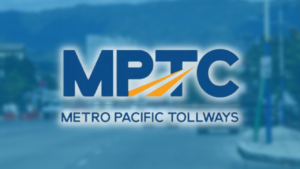So much is at stake in the bidding for the privatization of the ultra-busy Ninoy Aquino International Airport (Naia) that it must succeed.
To ensure success, logic dictates that there should be as many bidders for the government to choose from as possible, not just two, as the Asian Development Bank (ADB) has warned.
But with the Dec. 27 deadline for submission of bids for the P170.6-billion Naia rehabilitation project fast approaching, the Marcos administration may end up lacking in choices as foreign bidders have asked for more time to pore through the voluminous bidding documents and come up with a viable bid to transform the cellar-dwelling airport into a world-class facility.
If several bidders compete—at least four had requested the extension—the government’s share from revenues will be maximized. And if the government gets the best airport design and operator, tourism should flourish, and with it employment throughout the country. Economic growth will naturally follow, with tourism accounting for about 12 percent of gross domestic product.
Project advisor ADB had recommended that the deadline for submission be extended once by just a month to Jan. 29, otherwise only two local groups will most likely be able to submit their bids, thus shutting out potential foreign investors.
So far, a total of eight groups had expressed interest to bid for the project, including the Manila International Airport Consortium composed of some of the country’s largest conglomerates, which had submitted a P267-billion unsolicited bid that the Department of Transportation later shelved in favor of solicited bidding to get more interested parties to participate.
With the Naia privatization promising to be the biggest public-private partnership (PPP) project under the Marcos administration, it has naturally attracted the attention of the global investing community. Considering what is at stake, the proposed extension to Jan. 29 seems a more than reasonable request.
As the ADB said, inviting more bidders for the big-ticket project will provide “concrete evidence of the government’s commitment to encourage new players, and foreign investment in Philippine public-private partnerships, without causing undue delay to Naia’s modernization and the PPP program.” —Tina Arceo-Dumlao
Sys invest in Klook
The Sy family has become the first Philippine company to invest in Asia’s leading platform for travel services, Klook. The nine-year-old Hong Kong-based firm completed a fresh $210-million funding round, in which the Sy family’s privately held regional investment arm, SM Investments SG Holdings, participated.
The amount wasn’t disclosed but the latest funding round put the Sys in the company of renowned international investors like Bessemer Venture Partners, which led this round, along with other participants like private equity firm BPEA EQT, Asia investment funds Atinum Investment and Golden Vision Capital, Thailand’s Krungsri Finnovate (under Bank of Ayudhya) and Kasikornbank Financial Conglomerat. The round also included bank facilities from global banking giants Citi, J.P. Morgan and HSBC.
The money will be used for product innovation (by expanding City Pass offerings to enhance traveler convenience and savings), social and digital marketing (through the Klook Kreator program) and innovation using artificial intelligence.
“Leveraging strong business fundamentals that led to significant growth in revenue and profit this year, including a threefold increase in productivity (revenue per headcount), we are set for a new phase of sustainable expansion. With Asia in the early stages of post-COVID recovery, upcoming global events like the Paris Olympics 2024 and Osaka World Expo 2025, along with rising expenditures and digital adoption, the industry outlook in Asia is exceptionally positive,” said Ethan Lin, Klook CEO and cofounder. — Doris Dumlao-Abadilla


